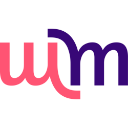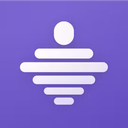Ticketing Tools software: purchase guide
Why Ticketing Software Matters in 2025
Still managing support requests with spreadsheets, email threads, or post-it notes stuck to someone’s monitor? That might have been fine five years ago—but today, it’s a recipe for chaos. In a world where response time is tied to customer trust, the old ways just can’t keep up.
Ticketing software isn’t just a tool for logging requests. It’s your support team's control center. It brings structure to the madness, turns customer messages into trackable tasks, and helps your team deliver fast, reliable, professional service—every single time.
What Changes With Ticketing Software?
The real value isn’t just in tracking tickets. It’s in how the system transforms the way your entire team works—from the way requests are handled to the way performance is improved over time. Here's what that looks like in practice:
Response times shrink—dramatically.
No more hunting through inboxes to find the latest customer email. With automated ticket assignment and status updates, every request lands exactly where it needs to be. Agents know what’s next. Customers aren’t left waiting. Everyone wins.
Customers stop repeating themselves.
With a unified view of all past interactions, your team always has context. Whether a customer reached out via email, chat, or social media, every detail is in the thread. No more “Have you tried turning it off and on again?” three times in a row.
Your team gets its time back.
Manual follow-ups, endless status updates, and ticket routing? Gone. Automated workflows handle the routine stuff so your agents can focus on complex problems, tricky requests, or simply being more human in their replies.
Visibility improves across the board.
Need to know why ticket volume spiked last Thursday? Or which agent is resolving the most issues on first reply? Real-time analytics help you spot trends, flag bottlenecks, and build a stronger strategy based on data—not guesswork.
You can finally scale without breaking things.
Growth is great—until your support system starts cracking under pressure. Modern platforms are built to grow with your team. Whether you're onboarding new agents or opening new markets, ticketing software adapts without needing a full overhaul every six months.
Core Features—And Why They Matter
Let’s break down what you should actually look for in a ticketing platform. These aren’t just nice-to-haves—they're what makes the difference between “we have a system” and “our support runs like a machine.”
Multichannel Support
Customers don’t care where they reach you—they just want help. A solid ticketing platform pulls in queries from email, live chat, contact forms, and social platforms into one dashboard.
Automated Workflows
Repetitive actions like assigning tickets or escalating based on SLAs shouldn’t require manual effort. With automation, you define the logic once and let the system handle the rest.
Custom Dashboards
Agents want open tickets. Managers want SLA trends. Executives want CSAT scores. A customizable dashboard gives everyone the visibility they need to make smart decisions.
Self-Service Portals
A searchable knowledge base lets customers solve simple problems themselves. It improves team efficiency and customer satisfaction.
Integrations That Actually Work
Whether it's pulling data from your CRM or notifying a Slack channel, the more connected your platform is, the more effective your support team becomes.
Enterprise-Grade Security & Compliance
From GDPR compliance to audit trails and access control, your platform needs to protect customer data and meet regulatory requirements.
Top Ticketing Tools to Know in 2025
Dedicated Ticketing Platforms
If your goal is to give your customer support team the clarity, speed, and structure they need to do their best work, these tools deliver.
Software |
Best For |
Key Strengths |
Things to Know |
Zendesk |
Growing businesses looking for maturity and flexibility. |
Omnichannel support, automations, extensive integrations, SLA tracking. |
Starts at $49/agent/month. May be costly for startups, but great long-term value for scale. |
Freshdesk |
Startups and SMBs that want ease of use with room to grow. |
AI-powered responses, intuitive UI, self-service tools, mobile-ready. |
Free plan available. Paid plans from $15/agent/month. |
Kayako |
Teams focused on real-time customer experience. |
Unified inbox, chat-first approach, journey tracking, escalation rules. |
Starts at $30/agent/month. Can require customization for large orgs. |
Zoho Desk |
Companies already using Zoho or seeking automation depth. |
Context-aware tickets, AI assistant, multichannel tools. |
Free for 3 agents. Paid plans from $12/agent/month. |
Integrated ITSM Platforms
For complex service environments—like IT departments and enterprises—these tools go beyond ticketing and offer full-service management workflows.
Software |
Best For |
Key Strengths |
Things to Know |
Jira Service Management |
Agile IT teams needing flexibility. |
Custom workflows, agile templates, robust analytics. |
Free for 3 agents. Paid from $20/agent/month. Setup may require IT resources. |
ServiceNow |
Large enterprises managing full-scale service ops. |
Automation, asset management, CMDB, scalability. |
Enterprise-grade. Pricing on request. |
BMC Helix ITSM |
Highly regulated or global organizations. |
AI insights, predictive service, ITIL alignment. |
Longer setup, demo required. |
How to Successfully Roll Out Ticketing Software
Buying the platform is step one. Making it stick? That’s where the magic happens. Here’s how to ensure a smooth implementation:
Define your "why" before your workflows.
Are you drowning in unassigned emails? Struggling to meet SLAs? Clarify your goals early and use them to shape setup, automation, and training.
Bring your team into the process—early and often.
Let agents and leads test features and give feedback. Their insights build better adoption—and better outcomes.
Start small. Learn fast. Then scale.
Run a pilot, catch the pain points, and iterate. Then roll out to the rest of the team with more confidence and fewer surprises.
Tailor training to real workflows.
Forget generic walkthroughs. Focus training on what agents actually do every day—replying, escalating, and closing tickets efficiently.
Keep communication channels wide open.
Create a safe space for questions, feedback, and sharing best practices post-launch. Support champions help keep things on track.
Don’t just measure adoption. Measure impact.
Are SLAs improving? Is CSAT up? Use data to refine processes and prove ROI to the wider business.
Ticketing Trends to Watch in 2025
The ticketing landscape is evolving—but awareness isn’t enough. The advantage goes to those who act on the trends. Here's what’s coming in 2025, and how forward-thinking teams are adapting:
1. AI and Automation Move to the Front Line
Modern platforms do more than just route tickets. Expect features like sentiment detection, reply suggestions, and predictive escalation to become the new standard. This isn't future talk—it's happening now.
What to do: Choose tools with ready-to-use AI features, not just ones in beta. Prioritize systems that let non-technical teams tweak automation rules without relying on devs.
2. Self-Service Becomes the Default Entry Point
Customers prefer to help themselves when possible—and businesses benefit from the reduced workload. But static FAQ pages aren’t enough anymore.
What to do: Invest in knowledge bases with built-in analytics. Track what customers search for, where they get stuck, and update content proactively. Assign someone to “own” this evolving content hub.
3. Omnichannel Isn’t Just for B2C
Whether you're in B2B or B2C, customers expect support conversations to flow seamlessly across chat, email, social, and phone. Fragmented channels lead to fragmented service.
What to do: Audit your support touchpoints. Can agents access a single conversation thread across channels? If not, it’s time to prioritize unified inboxes and cross-channel continuity.
4. Data Is Becoming Strategic Fuel
You’ve already got dashboards for CSAT and resolution time. But leading teams are now asking: What’s driving churn? Where are upsell moments hiding? How can support influence revenue?
What to do: Go beyond vanity metrics. Pick a platform that connects support data to CRM, product, and usage analytics. Insights should shape roadmap decisions and staffing plans—not just satisfy reporting checkboxes.
5. Integration Is the New Efficiency
Support can’t operate in a silo. The most effective teams integrate ticketing with sales, product, billing, and internal comms tools to build a truly responsive ecosystem.
What to do: During your selection process, ask vendors to demonstrate real integrations—not just list APIs. Can your agents trigger actions in other tools from within a ticket? Can your platform auto-enrich customer records from your CRM?
Conclusion: Choose Smarter, Scale Faster
Ticketing software is no longer a back-office utility—it’s a strategic lever for growth. It shapes customer experience, unlocks team efficiency, and prepares your business for what’s next.
Pick the right tool, roll it out with intention, and keep evolving it based on real feedback and measurable impact. That’s how you turn support from a cost center into a competitive advantage.


